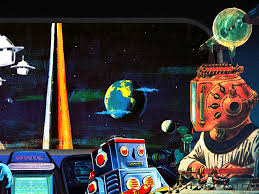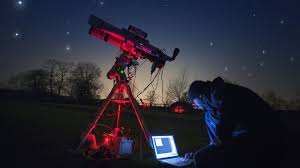The Fascinating World of Science Fiction
Science fiction, often abbreviated as sci-fi, is a genre that captivates audiences with its imaginative and speculative narratives. From exploring distant galaxies to envisioning future technologies, sci-fi offers a limitless canvas for creativity and storytelling.
One of the defining characteristics of science fiction is its ability to pose “what if” questions that challenge our understanding of the world and push the boundaries of possibility. Whether it’s contemplating the existence of extraterrestrial life or depicting advanced civilisations, sci-fi invites us to consider alternative realities and contemplate the consequences of scientific advancements.
Through iconic works such as H.G. Wells’ “The War of the Worlds” and Isaac Asimov’s “Foundation” series, science fiction has shaped our cultural imagination and influenced real-world scientific developments. Authors and filmmakers use this genre not only to entertain but also to provoke thought and inspire innovation.
Science fiction is a versatile genre that encompasses various subgenres, including space opera, cyberpunk, dystopian fiction, and time travel narratives. Each subgenre offers unique perspectives on the human condition, technology’s impact on society, and the possibilities that lie beyond our current understanding.
Moreover, science fiction serves as a mirror reflecting contemporary issues and anxieties. By extrapolating current trends into speculative futures, sci-fi offers a lens through which we can examine our world critically and contemplate alternative paths for humanity.
Whether you’re a die-hard fan or new to the genre, science fiction has something for everyone. Its ability to transport us to other worlds, challenge our assumptions, and spark our imagination makes it a timeless source of wonder and inspiration.
Frequently Asked Questions About Science Fiction
- Is Harry Potter a science fiction?
- Why is sci-fi so popular?
- What does fi mean in sci-fi?
- Who is the best sci-fi movie?
Is Harry Potter a science fiction?
The question of whether “Harry Potter” falls under the genre of science fiction is a common point of discussion among fans and scholars alike. While “Harry Potter” is undoubtedly a work of fantasy, with its magical elements, wizarding world, and themes of good versus evil, it does not fit neatly into the category of science fiction. Science fiction typically involves speculative or futuristic technologies, scientific principles, or alternate realities based on scientific concepts. In contrast, “Harry Potter” is rooted in a magical realm with its own set of rules and mythology. Therefore, while both genres share elements of imagination and creativity, “Harry Potter” is best classified as fantasy rather than science fiction.
Why is sci-fi so popular?
Science fiction’s enduring popularity can be attributed to its unparalleled ability to transport audiences to imaginative realms where the boundaries of reality are pushed to their limits. By exploring futuristic technologies, alien worlds, and alternate realities, sci-fi offers a captivating escape from the confines of everyday life. Moreover, the genre’s capacity to pose thought-provoking questions about humanity, ethics, and the universe resonates with audiences seeking intellectual stimulation and philosophical contemplation. Whether it’s the thrill of space exploration or the intrigue of time travel, science fiction continues to captivate viewers and readers alike by offering a glimpse into fantastical worlds that spark curiosity and inspire wonder.
What does fi mean in sci-fi?
The term “sci-fi” is a popular abbreviation for science fiction, a genre that delves into speculative and imaginative narratives rooted in scientific principles or futuristic concepts. The “fi” in sci-fi stands for “fiction,” indicating that the stories within this genre are not bound by present-day realities but instead explore hypothetical scenarios, technological advancements, and extraterrestrial encounters. By combining elements of science and fiction, sci-fi offers a platform for exploring the unknown, pushing the boundaries of human knowledge, and sparking curiosity about the possibilities that lie beyond our current understanding of the universe.
Who is the best sci-fi movie?
When it comes to determining the best sci-fi movie, opinions often vary widely among fans and critics alike. With a genre as diverse and rich as science fiction, there are countless films that have left a lasting impact on audiences. Some may argue for classics like “Blade Runner” or “2001: A Space Odyssey” for their groundbreaking visuals and thought-provoking themes, while others may favour more recent hits such as “Interstellar” or “Arrival” for their innovative storytelling and emotional depth. Ultimately, the question of the best sci-fi movie is subjective and depends on individual preferences, making it a topic of endless debate and exploration within the realm of science fiction cinema.



